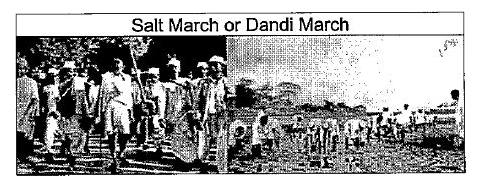If there were no gravity, which of the following will not be there for a fluid ?
Viscosity
Surface tension
Pressure
Archimedes' upwards thrust
The correct Answer is:D
To solve the question, "If there were no gravity, which of the following will not be there for a fluid?", we need to analyze the properties of fluids in the absence of gravitational force.
1. Understanding Fluid Pressure:
- In a fluid, pressure varies with depth due to the weight of the fluid above. The pressure at a certain depth h in a fluid is given by the equation:
P=P0+ρgh
where P0 is the pressure at the surface, ρ is the density of the fluid, g is the acceleration due to gravity, and h is the depth.
2. Effect of Zero Gravity:
- If there is no gravity (g=0), the equation simplifies to:
P=P0+ρ⋅0⋅h=P0
- This means that the pressure throughout the fluid remains constant and equal to the pressure at the surface, P0.
3. Pressure Difference:
- Since the pressure at all depths is the same (P0), there is no pressure difference in the fluid. This lack of pressure difference means that the fluid does not exert any force due to its weight.
4. Buoyancy Force:
- Buoyancy is the upward force exerted by a fluid on an object submerged in it, which is a result of pressure differences. The buoyant force is given by Archimedes' principle:
Fb=ρ⋅V⋅g
where V is the volume of the fluid displaced by the object.
- With no pressure difference and no gravity, the buoyant force becomes zero because g=0.
5. Conclusion:
- Therefore, if there is no gravity, the buoyancy force does not exist, and consequently, Archimedes' upward thrust will also be absent. Thus, the correct answer to the question is that buoyancy force will not be present.
Final Answer:
The correct option is D: Buoyancy force will not be there for a fluid if there is no gravity.
- In a fluid, pressure varies with depth due to the weight of the fluid above. The pressure at a certain depth h in a fluid is given by the equation:
P=P0+ρgh
where P0 is the pressure at the surface, ρ is the density of the fluid, g is the acceleration due to gravity, and h is the depth.
- If there is no gravity (g=0), the equation simplifies to:
P=P0+ρ⋅0⋅h=P0
- This means that the pressure throughout the fluid remains constant and equal to the pressure at the surface, P0.
- Since the pressure at all depths is the same (P0), there is no pressure difference in the fluid. This lack of pressure difference means that the fluid does not exert any force due to its weight.
- Buoyancy is the upward force exerted by a fluid on an object submerged in it, which is a result of pressure differences. The buoyant force is given by Archimedes' principle:
Fb=ρ⋅V⋅g
where V is the volume of the fluid displaced by the object.
- With no pressure difference and no gravity, the buoyant force becomes zero because g=0.
- Therefore, if there is no gravity, the buoyancy force does not exist, and consequently, Archimedes' upward thrust will also be absent. Thus, the correct answer to the question is that buoyancy force will not be present.
The correct option is D: Buoyancy force will not be there for a fluid if there is no gravity.
Similar Questions
Knowledge Check
Which of the following were the rationale behind Dandi March?
 ADirect action campaign of tax resistanceBNon-violent protest against the British salt monopolyCTo make the British quit IndiaDProtest regarding land
ADirect action campaign of tax resistanceBNon-violent protest against the British salt monopolyCTo make the British quit IndiaDProtest regarding landWhich of the following is absent in the coelomic fluid of earthworm ?
ASaltsBHaemoglobinCCorpusclesDProteins
Which of the following were present in prebiotic soup?
View SolutionWhich of the following depends on acceleration due to gravity ?
View SolutionWhich one of the following processes depends on gravity ?
View SolutionGiven that v is speed, r is the radius and g is the acceleration due to gravity. Which of the following is dimensionless
View SolutionIf the mass of the sun were ten times smaller and the universal gravitational constant were ten times larger in magnitude, which of the following is not correct?
View SolutionWhich of the following is caused by Low Ca+ in the body fluid
View Solution
